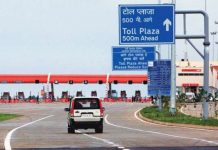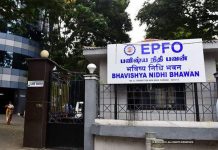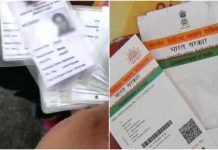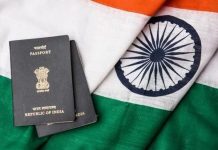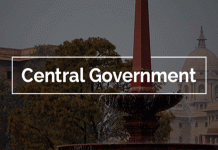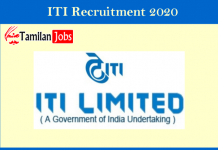Wary of slipping on fiscal deficit targets, the Finance Ministry is reluctant to take a hit on excise duty levied on petrol and diesel. So, as rising fuel prices set off a political firestorm, it is the Petroleum Ministry which has stepped in. Sources have told The Indian Express that it is working on getting Oil & Natural Gas Corporation (ONGC) to take the burden. “The Ministry plans to direct ONGC to sell its crude oil at below ruling international prices by capping the price at, say, $70 for the entire fiscal year. Oil India Ltd (the other national oil producer) will not be a part of this scheme,” a government official said.
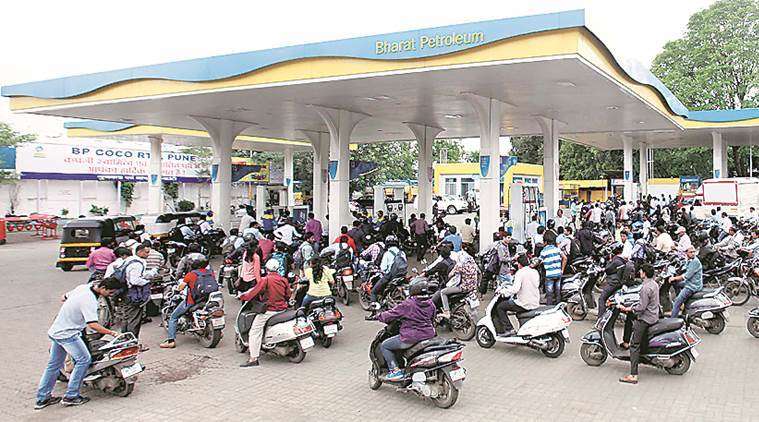
ONGC supplies an estimated 20 per cent of the country’s total crude oil requirement to refining-cum-marketing companies IOC, HPCL and BPCL. The official said the exact price cap hasn’t been determined as ONGC has asked for a higher price to fund its capital expenditures for the next two years. Incidentally, ONGC and OIL last contributed to fuel subsidies in June 2015 with contributions of over 40 per cent of the annual subsidy bill.
The official said that ONGC’s contribution could pare the required price increase in petrol and diesel by one-third with an additional marginal relief provided by reducing the dealers’ commission by 18 paise per litre on diesel and 23 paise per litre on petrol. ONGC’s burden sharing, to be implemented through a mechanism which is still in works, would provide close to Rs 30,000 crore for this exercise, he said. This is equivalent to a Rs 2-per litre cut in excise duty on both petrol and diesel.
“The idea has been accepted in principle but the methodology and the numbers are to be worked out,” he said. Even after discount, ONGC’s net realised price on crude oil would be higher than $56 which it earned per barrel in fiscal 2017-2018. At present, the government subsidy is limited to cooking gas, LPG and kerosene with transport fuels petrol and diesel out of its ambit. The burden sharing, said the official, was being considered as the “long-term solution to address the volatility and frequent revisions in rates” which Union Law and IT Minister Ravi Shankar Prasad announced on Wednesday.
“The government is keen that instead of having an ad hoc measure, it may be desirable to have a long-term view which addresses not only volatility but also takes care of the unnecessary ambiguity arising out of frequent ups and downs. That process is underway,” Prasad had said. The BJP-led government had in June last year junked a 15-year old practice of revising rates every fortnight and introduced daily revisions which worked well except during periods immediately preceding an election.
There was a 19-day freeze in revising rates before Karnataka went to polls, and since the time the hiatus ended on May 14, rates have gone up by Rs 2.54 a litre in case of petrol and Rs 2.41 in diesel. Petrol costs Rs 77.17 per litre in Delhi while diesel sells for Rs 68.34. The 10-day relentless price increases are building pressure on the government to cut excise duty to give immediate relief to consumers but after a meeting of the Union Cabinet headed by Prime Minister Narendra Modi, Prasad offered little indication if a reduction in tax was coming.
On excise duty, Prasad said the proceeds from such taxes were used for building highways, digital infrastructure, supplying electricity to villages, for hospitals and education. “So tax on fuel is linked with developmental issues. We understand that there is a compelling need for a long-term solution, structured solution,” he said.
The government raised excise duty nine times between November 2014 and January 2016 to shore up finances as global oil prices fell, but then cut the tax just once in October last year by Rs 2 a litre. The Centre levies Rs 19.48 as excise duty on a litre of petrol and Rs 15.33 on diesel. State sales tax or VAT varies from state to state. Unlike excise duty, VAT is ad valorem and results in higher revenues for the state when rates move up.

